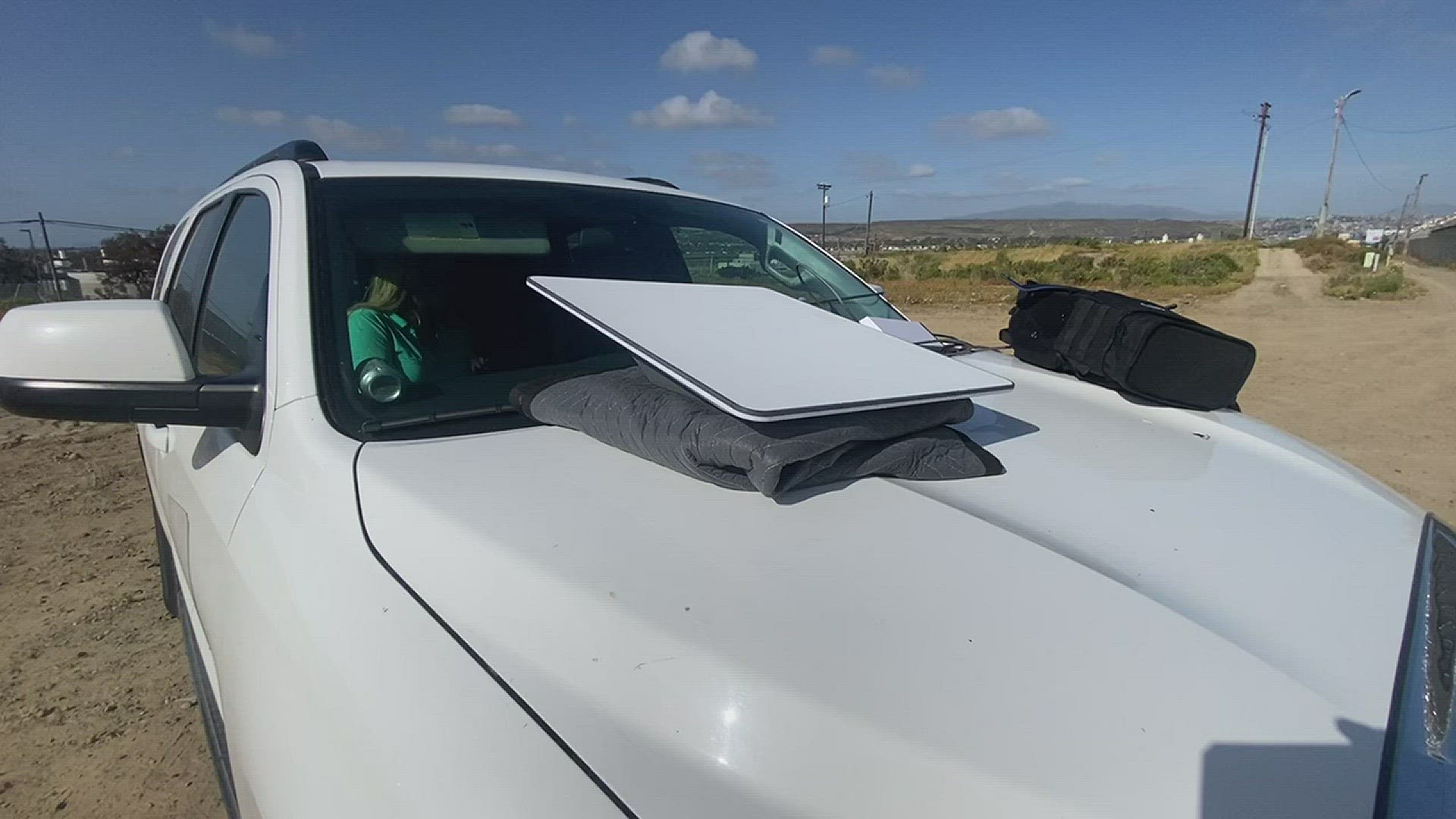SAN DIEGO — CBS 8 San Diego deployed SpaceX Starlink technology to provide seamless connectivity to CBS 8 Studios as thousands of migrants arrived at the U.S-Mexico border seeking asylum bogged down cellular reception in the area.
With crowds of local and national media gathering at the U.S.-Mexico border, alongside thousands of migrants seeking asylum in the United States ahead of Tittle 42 expiring, cell phone service has been spotty or inaccessible, according to CBS 8 field crews.
"The technology we currently use combines Verizon, T-Mobile, and AT&T for live capabilities through Dejero," said Vince Jones, Head of Technology and Operations at CBS 8 San Diego.
Jones said the challenge most local media experiences in the field is that most new technology relies on cell phone providers for crucial live infrastructure.
Like a consumer would experience degraded service in a sporting event, concert, or festival setting, it is the same degradation local media experiences when attempting a live feed transmission.
Jones deployed Starlink Mobility into the field with Chief Photographer, Kenny McGregor, to test-drive the hardware with CBS 8 San Diego's current live transmission technology.
Starlink Mobility provides high-speed global internet, up to 220 megabytes of download speed, for critical in-motion applications, according to Starlink's website. The hardware costs $2,500.
McGregor said the technology has been monumental in ensuring stable live transmission as field crews aren't solely relying on bogged-down cell phone antennas.
"Starlink is bypassing cell phone towers and connecting to SpaceX satellites in the southern skies," McGregor said.
Jones said Starlink technology is in a testing stage at CBS 8 San Diego but has already tremendously helped live capabilities and connection from the U.S.-Mexico border.
WATCH RELATED: Tackling the digital divide: How you could qualify for free internet service

